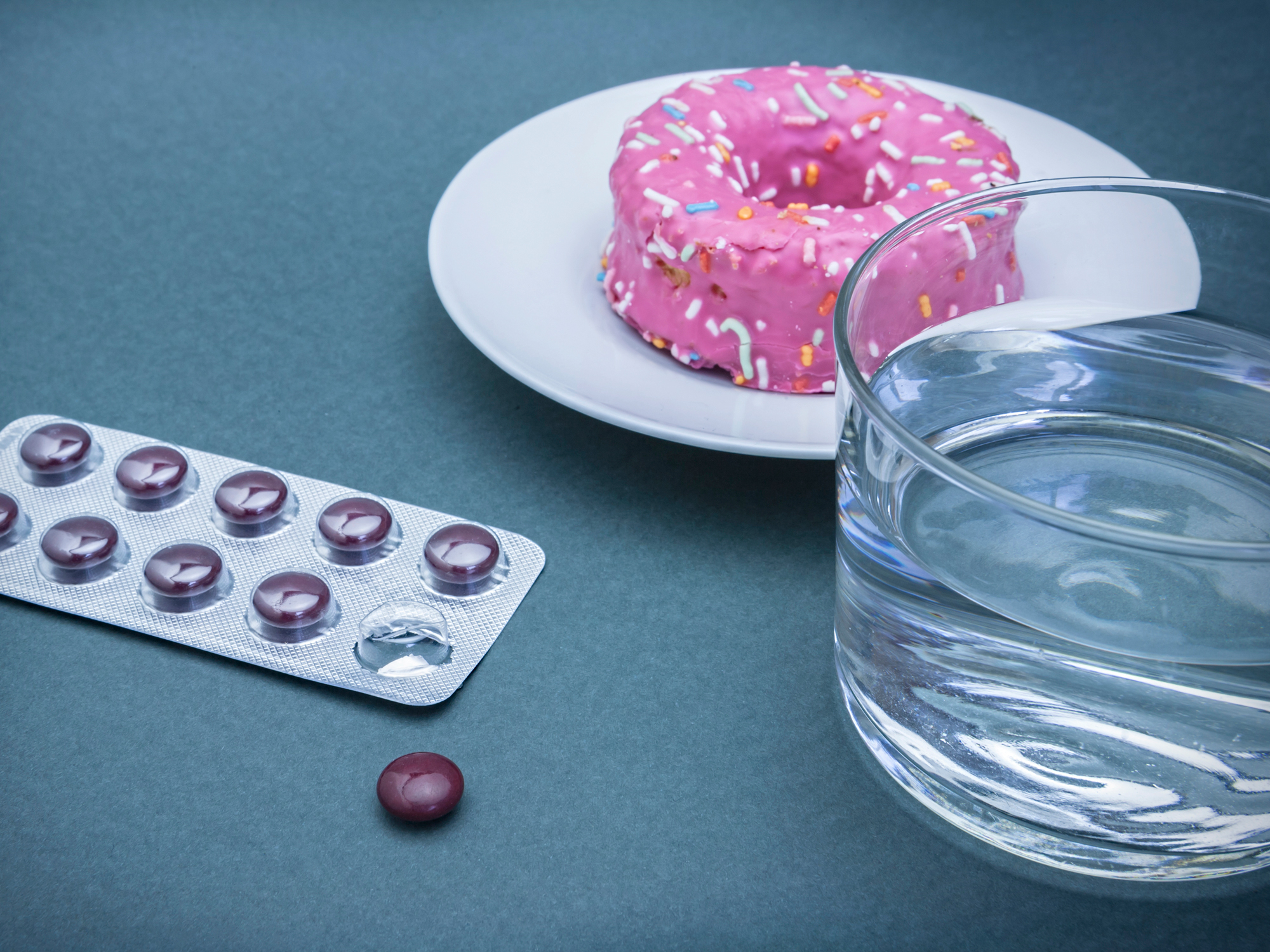Get Easy Health Digest™ in your inbox and don’t miss a thing when you subscribe today. Plus, get the free bonus report, Mother Nature’s Tips, Tricks and Remedies for Cholesterol, Blood Pressure & Blood Sugar as my way of saying welcome to the community!
“Magic pill” counters the ill-effects of a junk food splurge

We’ve all done it… splurged on food that’s so bad for us, but tastes so good.
Sometimes temptation strikes and will power is just nowhere to be found. But if you make a regular habit of giving in, you’re in for a world of hurt down the road.
But what if there was a magic pill — so to speak — that could “undo” the effects of the bad foods?
For example… say you have a bad day and find yourself sitting in a fast food drive-thru ordering a bacon double cheeseburger, fries and a milkshake — and you eat every last morsel…
Well, as crazy as it sounds, you can protect yourself from the ill-effects of this kind of occasional saturated fat-fest by eating…
More fat.
Researchers from the University of Georgia found that regularly eating foods that are high in polyunsaturated fats is so beneficial to your health, it gives you a bit more leeway for those occasional splurges.
“If you try to eat fairly healthy most of the time and eat a diet that’s higher in these polyunsaturated fats on a regular basis, when you do occasionally splurge or have meals high in saturated fats, it’s not quite as detrimental,” said Jamie Cooper, the study’s senior author and an associate professor in the department of foods and nutrition in the UGA College of Family and Consumer Sciences.
Researchers found that study participants who ate a high polyunsaturated fat diet for just seven days experienced a dramatic improvement in cholesterol levels, including lower levels of LDL (the “bad” cholesterol). But that’s not all…
Their bodies also burned fat more efficiently.
So, eating a diet high in polyunsaturated fat could help you burn off the extra fat and calories you consumed during that misguided fast food run. It’s like a built-in insurance policy for when your better dietary judgement fails you.
“By consuming a diet higher in polyunsaturated fat on a regular basis, you’re basically walking around with this inherent protection from the cardiometabolic effects of poor, high saturated fat meals,” said study co-author Chad Paton, an assistant professor in UGA’s foods and nutrition department and the College of Agricultural and Environmental Sciences.
Study participants ate polyunsaturated powerhouses like walnuts, wild-caught Alaskan keta salmon, tuna, flax seed oil, grapeseed oil, canola oil and fish oil supplements.
Other prime sources of polyunsaturated fats are sunflower seeds, herring, mackerel, trout, soybeans, tofu and other soy products.
But of course, researchers gave one (somewhat obvious) caveat: You can’t let your splurges become too frequent; otherwise you will suffer the consequences.
“If on your ‘splurge’ day or meal you consume 1,000 excess calories, you are going to put on some fat mass from that,” Cooper said. “Even though higher daily polyunsaturated fat consumption can help you burn more fat when eating high saturated fat meals, it can’t overcome the fat mass gain that will occur with a large caloric surplus from overeating.”
Dietary experts recommend that you get 25 to 35 percent of your daily calories from polyunsaturated fats. And if you stick to this type of diet religiously, you don’t need to beat yourself up too badly when you fall off the wagon every now and again.
Sources:
-
Jada L. Stevenson et al. A PUFA-rich diet improves fat oxidation following saturated fat-rich meal, European Journal of Nutrition (2016)
-
“Polyunsaturated Fats.” The American Heart Association. http://www.heart.org. Retrieved June 3, 2016.
-
“Cholesterol: Know Your Fats.” The American Heart Association. http://www.heart.org. Retrieved June 3, 2016.












